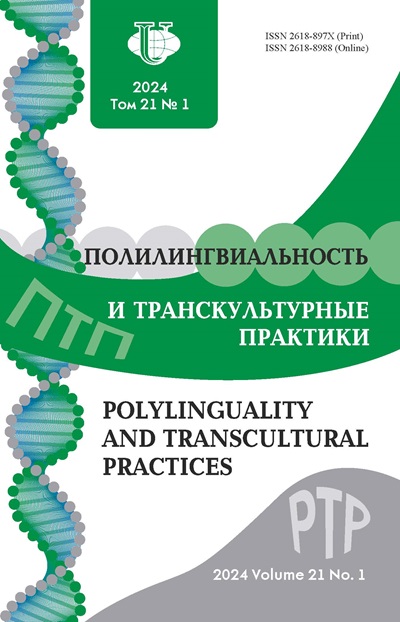Issue
Title
Authors
|
Strelchuk E.N. |
|
Mikaeljan L.S. |
|
Azimov E.G. |
|
Novikova N.S., Pugachev I.A. |
|
Zharkova E.H., Nazartseva E.A. |
|
Nuradilov S.S. |
|
Davydova E.V. |
|
Ovtcharenko A.Y. |
|
Danilova M.V. |
|
Novikova A.K. |
|
Lavitski A.A. |
|
Butenina E.M. |
|
Amineva V.R., Yuzmukhametova L.N. |
|
Vinogradova E.N., Klobukova L.P. |
|
Kalinina V.V. |
|
Orlova E.V. |
|
Dzhusupov M. |
|
Sinyachkin V.P. |
|
Budiltseva M.B., Novikova N.S. |
|
Essina Z.I. |
|
Karapetyan N.G., Pugachev I.A. |
|
Nedosugova A.B. |
|
Bobrova S.E. |
|
Skyaeva E.V., Karapetyan N.G. |
|
Kudoyarova T.V. |
|
Arkhangelskaya A.Z., Zhigunova O.M., Zhindaeva A.G. |
|
Rogova A.V., Fedorenkov A.D. |
|
Korchik L.S. |
|
Gosteva J.N. |
|
Seifert E.I. |
|
Lavitski A.A. |
|
Medvedeva N.V. |
|
Smagulova J. |
|
Amineva V.R., Nabiullina A.N. |
|
Odintsova I.V. |
|
Caspers O.V. |
|
Rudenko-Morgun O.I., Arhangel’skaja A.L., Al’-Kaysi A.N. |
|
Akhnina K.V. |
|
Bragina M.A. |
|
Prokhorova I.O. |
|
Wenqian Zang -. |
|
Bulavina M.A. |
|
Balykhina T.M. |
|
Guirinskaya L.V. |
|
Namakshtanskaja I.E., Romanova E.V. |
|
Makhankova I.P., Novikova N.S., Serova L.K., Khvorikova E.G. |
|
Tsoupikova H.V. |
|
Romanova N.N., Amelina I.O. |
|
Stepanenko V.A., Nahabina M.M., Kurlova I.V. |
|
Ignatova I.B. |
|
Romero Intriago D.I. |
|
Wenqian Zang -. |
|
Kochai Mir Sahib Jan -. |
|
Archangelskaya A.L., Kameneva O.V. |
|
Seifert E.I. |
|
Fakhrutdinova L.I., Amineva V.R. |
|
Medvedeva N.V. |
|
Zhang R. |
|
Afanasieva N.D., Zakharchenko S.S., Mogileva I.B. |
|
Rostova E.G. |
|
Gadzhieva A.A. |
|
Gatinskaya N.V. |
|
Ovtcharenko A.Y. |
|
Pugachev I.A., Yarkina L.P. |
|
Voropaeva J.A. |
|
Avdeeva I.B. |
|
Li Chuan -. |
|
Iliyna V.A. |
|
Elagina R.I. |
|
Elnikova S.I. |
|
Lutin S.A. |
|
Vasil’eva A.A. |
|
Mamontov A.S., Tzedendorjiin E., Boguslavskaya V.V. |
|
Vladimirova T.E. |
|
Agmanova A.Y., Asmagambetova B.M. |
|
Lichačiova A.B. |
|
Mikheeva N.F., Dvoryadkina N.A. |
|
Ganelina Y.A. |
|
Maslova I.B., Gosteva Y.N. |
|
Kurilenko V.B., Titova L.A. |
|
Deikina A.D., Levushkina O.N. |
|
Sorokina E.V. |
|
Pugachev I.A. |
|
Zakoyan L.M. |
|
Balykhin M.G., Fedorenkov A.D. |
|
Bereznyatskaya M.A. |
|
Gartsov A.D. |
|
Bogdanova K.A. |
|
Kurilenko V.B., Makarova M.A. |
|
Milovanova I.S. |
|
Pavlyuk N.A. |
|
Alexeeva I.S. |
|
Mulahi S. |
|
Suprun V.I. |
|
Al-Kaisi A.N., Koutsoni O.M., Rudenko-Morgun O.I. |
|
Anikina M.N. |
|
Kulibina N.V. |
|
Turinova O.O. |
|
Sukhov N.V. |
|
Tsyrendorzhina A.B. |











